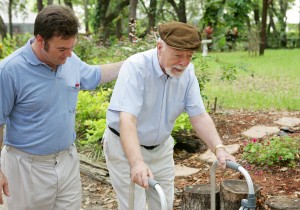Introduction
New research on mitochondria has shown that “frail mitochondrial DNA equals frail people”. More specifically, researchers from the McKusick-Nathans Institute of Genetic Medicine of the Johns Hopkins University School of Medicine in Baltimore, MD found that mitochondrial DNA content varies according to age (less mitochondrial DNA in older age), sex (yes, women have more than men) and mitochondrial DNA even has an inverse relationship to frailty and a direct relationship to life expectancy. The publication of this paper was in February of 2015.
Mitochondria are the powerhouses within each cell and there are between 10 and several thousand mitochondria per cell, depending on what the power needs of a cell type are.
Each mitochondrion has its own mitochondrial DNA contained in 2 to 10 small circular chromosomes that regulate the 37 genes necessary for normal mitochondrial function.
Johns Hopkins University clinical trial regarding frailty
In order to track mitochondrial DNA and its relationship to frailty and old age, the Johns Hopkins University researchers accessed data from two large clinical trials. One study was the Cardiovascular Health Study (CHS), which took place between 1989 and 2006. The other one was the Atherosclerosis Risk in Communities (ARIC) study spanning from 1987 to 2013. Blood tests with determinations of mitochondrial DNA were available from both studies.
In multi ethnic groups it was apparent that mitochondrial DNA content followed the age of a person.
Researchers defined frailty as a person who had aging symptoms including weakness, a lack of energy in comparison to the past, activity levels that were much lower than before and loss of weight. Persons with frailty according to these criteria in the two studies had 9% less mitochondrial DNA than non frail study participants.
Prevention of frailty through early intervention
Another subgroup were white participants. Researchers compared their bottom mitochondrial DNA content to the top mitochondrial DNA content. Frailty was 31% more common in the bottom DNA content group. This means that white people are more prone to frailty and they should take steps early on to prevent this.
Mortality data were also examined and it turned out that those study participants who had the highest level of mitochondrial DNA lived 2.1 years longer on average than those with the lowest level of mitochondrial DNA.
The study also found that women in the two clinical trials had 21% more DNA in their mitochondria on average than men.
Prevention of DNA loss from mitochondria
The study did not suggest any preventative steps against mitochondrial DNA loss. But there is ample evidence in the literature that this can be achieved through supplements that can both help multiply mitochondria as well as stimulate the metabolism of mitochondria. Lifestyle changes are also effective.
I am not supporting the specific brands of supplements mentioned in the Dr. Whitaker link, but find the common sense explanations useful, as they explain what the supplements do.
You may find the scientific data too tedious to delve into. Here is a list that may be of help to you to preserve your health and your vitality:
List to help you preserve your health and vitality
- Ubiquinol (=CoQ-10) slows down mitochondrial aging. I take 400 mg per day. CoQ-10 repairs DNA damage to your mitochondria.
- Another supplement, 20 mg of PQQ (=Pyrroloquinoline quinone) per day stimulates your healthy mitochondria to multiply. Between the two supplements you will have more energy as optimal mitochondrial function is ensured.
- There are simple lifestyle changes you can make: eat less calories as this will stimulate SIRT1 genes, which in turn stimulates your cell metabolism including the mitochondria.
More supplements to help prevent frailty
- Resveratrol, the supplement from red grape skin can also stimulate your mitochondria metabolism. Exercise more and regularly as this will also stimulate your mitochondria to multiply similar to the effects of PQQ. I take 500mg of trans-Resveratrol once daily.
- Alpha-lipoic acid is an antioxidant that counters the slowdown of mitochondrial metabolism. I recommend 300mg per day.
- L-arginine is an amino acid that is a precursor of nitric oxide (NO). I prefer taking NO as the NEO-40 supplement where nitric oxide is directly released into your system. I take 1 lozenge of Neo-40 twice per day.
Reference
http://www.eurekalert.org/pub_releases/2014-12/jhm-aom121614.php






